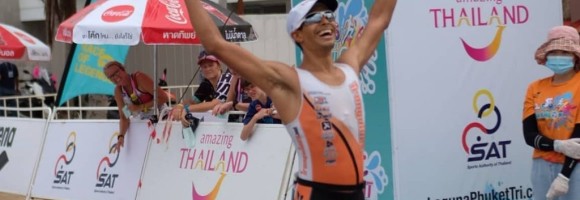Can you suggest what & when we should be eating pre/post training sessions? Especially as many sessions are over dinner time.
Good Question – many athletes with regular (long) office hours find themselves in this situation and we need to do our best to balance our pre- training energy requirements with the post- training recovery needs, without overdoing the late night dinner.
Pre – Training
1) It depends a little on what you had for lunch. If you have had a full meal at lunch (ie – not grazing) then you may not need much at all. If you do feel hungry, make sure it’s not thirst you are feeling and sip away at a large glass of water or a zero carbohydrate electrolyte drink like Nunn. Choose the 2nd option – especially if you have trained in the morning.
2) If you are peckish and feel like you need a little boost of energy before training, a few pieces of fruit is great. I like an apple or banana smeared with peanut butter. You can also try a small bag of Almonds / Trail Mix or a pot of yoghurt. Basically something that is small in volume and calorie dense that will not hang around in your tummy for ages.
3) If you are starving and/ or hypoglycaemic, your best bet is go for something a little more substantial with a bit of fat in it, like a chocolate croissant or a Snickers bar, to fill you up and keep the hunger pangs away – and give you the energy you need to get you through your session.
4) Stay away from caffeine in the early evening, even if you love the buzz that coffee gives you during a training session, because this will really mess with the sleep signals when it is time to turn in. This is what de-caf is for.
Post- Training
The main consideration is that you want the right mix of nutrients for recovery but not such a large quantity so that you are feeling too bloated to turn in at a reasonable time. With this in mind, you won’t be far off it you follow these principals.
1) Eat as soon as possible after the session to give you as much time as possible to digest it. It’s a good idea to get a recovery drink in as soon as you finish your session to take care of the immediate replenishment. This will also help to moderate your appetite for when you get home and want to have some proper food.
2) Ideally you’re looking for a meal that will fill you up (so you’re not hungry), is packed full of antioxidants and vitamins (for recovery) but is easily digested (so you can get to bed). For protein, I like fish over chicken over red meat at this time of night. I try to get a sizable portion of veggies – the more colourful the better – as this will fill me up nicely but not sit around in my stomach for ages. Veggies are nutrient dense and a source of carbs as well so this is a better option than filling up on refined carbs such as pasta and rice (that spike your insulin levels) alone. Get some oil/ fat in there as well (salad dressing/ butter/ cheese) to help aid digestion and absorption of fat soluble vitamins and to help you feel full.
If the cupboard is bare, I turn to 2 pieces of Vegemite on buttered toast, cheese and 2 half boiled eggs.
3) Have just enough to cover your recovery needs. While at first this may sounds a little vague, if you pay attention to how your stomach feels relative to your activity levels for the rest of the night, you will get a good feel for what is just right for you. Work backwards from the time you want to get into bed and plan to have an emptyish feeling tummy by then.
4) Lastly and most importantly – Beware the late night sugar craving! We often wreck our entire days’ worth of good eating right at the end with the last and fatal grab for ‘just a taste of’ ice cream/ chocolate/ wine/ cereal/ muesli/ fruit. Don’t kid yourself; the last couple of options are sources of sugar as well!
What is happening is that while you are physically tired from a big day, and your body is telling you to start getting ready for bed, your brain on the other hand, especially if you’re plonked in front of the TV or Email or Facebook (low energy expenditure but high level mental stimulation) is active and needs more quick release energy to stay awake for longer. We tell ourselves that we’re ‘unwinding’ and we ‘deserve it’ and ‘it won’t make that much of a difference cos we’re training tomorrow’ as we reach for that late night nibble. All this time, the remnants of that sneaky little shot of coffee that I warned you about earlier, is still floating about in there urging you on.
This is the worst time to spike your blood glucose levels because it triggers a release of insulin which in turn switches your metabolism towards storing fat. The last thing you want is to go to bed with high levels of blood insulin. High insulin levels also signal the body to stop producing Human Growth Hormone (HGH) which is a desirable by-product from the solid strength session that you’ve just put in. HGH is a big player in the physiological adaptation and recovery of muscles and we want it to be at high levels as we go to sleep.
Essentially, there is a disconnect between body and brain and what is actually a signal to start the process of going to bed, is misinterpreted as a sugar craving so that you can stay awake for longer. You must re- learn your response to this signal if you are looking to drop excess fat.



























Recent Comments